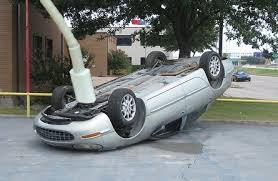Yes, generating electricity pollutes - but not anywhere near as much as running an ICE (internal combustion engine; e.g., gasoline-powered) auto. Especially as coal becomes less and less used by utilities, who continue to switch to natural gas and renewables.
Fully half of the smog generated in CA is solely from ICE vehicles. So moving to electric or hybrids helps tremendously.
CA also generates an increasing percentage of its energy from renewables; it's mandated by law. We have at times reached 100% generation from renewable energy, although usually it hovers around the 60+% mark.
250-300 mile batteries are now common in a majority of electric cars. When was the last time you took at 300-mile trip? The truth is, most people simply do not drive very far at any one time. On a daily basis the average, even in CA, is less 50 miles a day.
On a 240-volt recharger you can recharge an electric car in 6-10 hrs - much less if your car has a 'supercharge' function, similar to Tesla. Tesla can supercharge a 110+ mile range in less than 20 minutes.
Most people recharge their vehicles at home. If you have solar panels, and/or rates are lower at night, charging will cost you much less than gas, even though our local utility has some of the highest electricity rates in the US.
Instead of guessing at assumptions, there are several free calculators on the Web that will allow you to plug in various data to help figure out if it's worth buying an electric/hybrid car.
Electric cars have a much lower overall maintenance cost than ICE or even hybrids, btw. But they do drive and brake differently, so one needs to get used to it. Not difficult, though.
GM has already announced it will not make any ICE cars after 2035. European car mfgs are moving there even faster; I do not expect any of them to offer ICE vehicles after 2030.
Three Electric S.U.V.s With Tesla in Their Sights
Test-driving Volkswagen’s ID.4, Ford’s Mustang Mach-E and Volvo’s XC40 Recharge: The green turf where Tesla has dominated for so long is poised to grow crowded.
NY Times April 22, 2021
3 All Electric SUVs aim at Tesla
(excerpt) An electric trickle is turning into a flood: As many as 100 new E.V. models are coming to showrooms by 2025. Heavyweights including Volkswagen, General Motors and Ford are floating promises of all-electric lineups within a decade.
The end times of gasoline can almost seem a fait accompli, except for one pesky issue: Even given Tesla’s strides, we’re still waiting for the first genuine E.V. sales hit, let alone a mass exodus from unleaded.
In 2014, Nissan sold a mere 30,200 Leafs, and that’s still the American record for any non-Tesla model. Ford routinely sells more than 800,000 F-Series pickups. A single gasoline sport utility vehicle, the Toyota RAV4, finds well over 400,000 annual buyers, compared with roughly 250,000 sales last year for all E.V.s combined — 200,000 of which were Teslas.
Automakers insist we’re “this close” to a tipping point. E.V. market share is expected to grow to as much as 50 percent by 2032, from just 1.7 percent last year, said Scott Keogh, president and chief executive of Volkswagen of America. While Tesla captured 80 percent of the U.S. market for electric vehicles in 2020, VW and other global giants — with war chests built on internal-combustion engines and unmatched scale and manufacturing know-how — are well positioned to take a piece of Tesla’s pie.
“There’s never been a competitive consumer product that sits at 80 percent market share” for long, Mr. Keogh said.
Globally, Volkswagen is poised to pass Tesla as the world’s biggest electric vehicle seller as early as next year, according to Deutsche Bank, with Europe and China its key markets. In America, where the brand remains an underdog, VW and other legacy automakers are concentrating fire on the sales fortress of compact S.U.V.s: Models like the RAV4, which deliver roughly four million annual segment sales.


